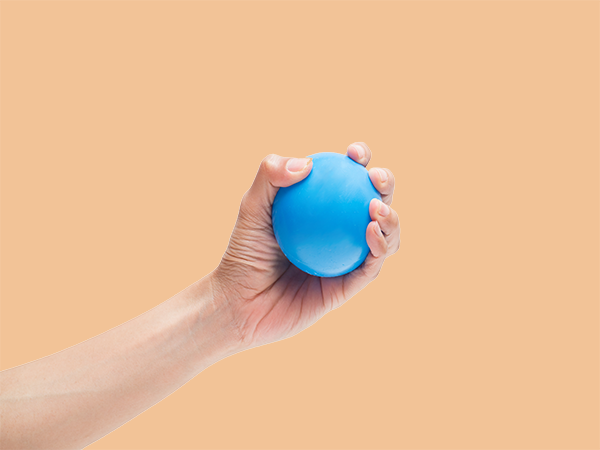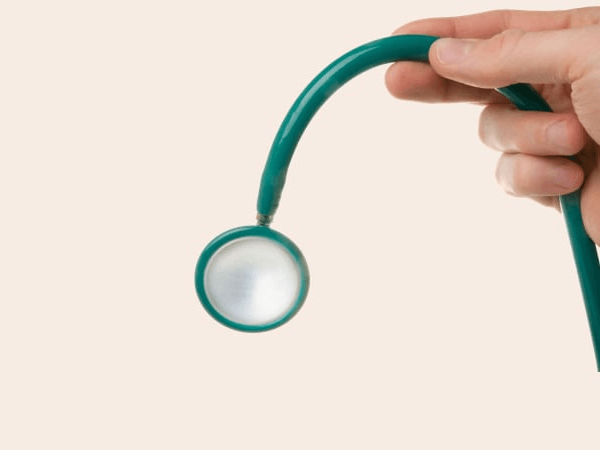If you’ve experienced blue balls, you know exactly how real and uncomfortable it is. So, what causes it? Are blue balls dangerous? And, did you know women experience a similar problem too? Let’s talk about balls.
What are blue balls?
The official term for blue balls is epididymal hypertension. Why the long name? To put it simply, the epididymal is a tube at the back of your testicles that stores and transports sperm. And, you might know that hypertension means raised blood pressure. So, put the two together, and you get pressure in your balls, usually from a build-up of fluid or blood. As you can imagine, pressure building up in your testicles is pretty uncomfortable.
What causes blue balls?
Blue balls (or epididymal hypertension) results from having an erection for a prolonged amount of time and then not ejaculating. If you’re having sex or masturbating, and you get interrupted and are unable to finish, it could lead to blue balls.

Get treatment for ED 100% online
Connect with a Canadian nurse practitioner from home. Fast approvals, discreet delivery, ongoing support.
Basically, when you are aroused and get an erection, it’s not just your penis that swells. Your testicles do too. Your blood vessels expand, and your blood flows down to fill your sexual organs.
When you orgasm (or you stop feeling turned on), the blood flows back into the body. But, when you’re highly aroused and can’t do anything about it, the blood remains in your penis and testicles, causing pressure.
It’s that build-up of pressure that causes pain and discomfort. It can even make your balls look slightly blueish in colour — hence the name. Although, many people don’t notice a colour change at all.
Signs and symptoms of blue balls
As well as the blueish hue that you might see in your testicles, symptoms that can occur include:
- Mild pain
- Discomfort
- A feeling of heaviness
- An aching feeling
These symptoms aren’t just for men. As we mentioned earlier this problem can happen to women too (although not in testicles, of course). The exact same process occurs when a woman gets aroused and blood flows to the sexual organs, including the vulva. If she doesn’t orgasm or remains really turned on, she can also experience heaviness, pain, aching, and discomfort in the clitoris and vulva. In fact, it’s sometimes referred to as blue vulva! But, for now, let’s get back to blue balls.
How long does epididymal hypertension last?
This is not a long-term problem. It’s a short-lived condition that isn’t dangerous. Once you ejaculate, or you return to a non-aroused state, the problem will go away. Simple.
There isn’t a lot of clinical research about blue balls, and the easiest way to deal with them is to ejaculate. However, some people say a good old-fashioned cold shower can help, although there is no science to back this up.
If you’re not in a place where you can masturbate or take a cold shower, then try thinking about something non-sexual to distract your mind. Alternatively, turning to an engaging activity or some exercise might help. As soon as those feelings of arousal go away, so will the blue balls.
Should I see a doctor?
If it’s a case of straightforward blue balls, then there’s no need to see a doctor. It’ll clear up when you aren’t aroused anymore.
However, if you are experiencing pain in your testicles and it is persistent (no amount of ejaculation helps), you should speak to a healthcare practitioner.
It’s also a good idea to get in the habit of checking your testicles regularly so that you know what’s normal — and what’s not. If you find any abnormal lumps or bumps, then get yourself to a doctor for a check-up.
To sum it all up, blue balls are real. Although uncomfortable, it should pass quickly and is nothing to worry about. You can speed up the process either by ejaculating or doing something to distract yourself and get rid of your arousal. However, if you find that you have discomfort in your testicles that does not go away, that is most likely not blue balls and it would be wise to see a medical professional. Or, if you have significant, sudden, and persistent testicular pain, redness, or swelling, go to the emergency department immediately. Sudden and very severe pain can be a sign of testicular torsion so it’s always best to get that seen to right away.




